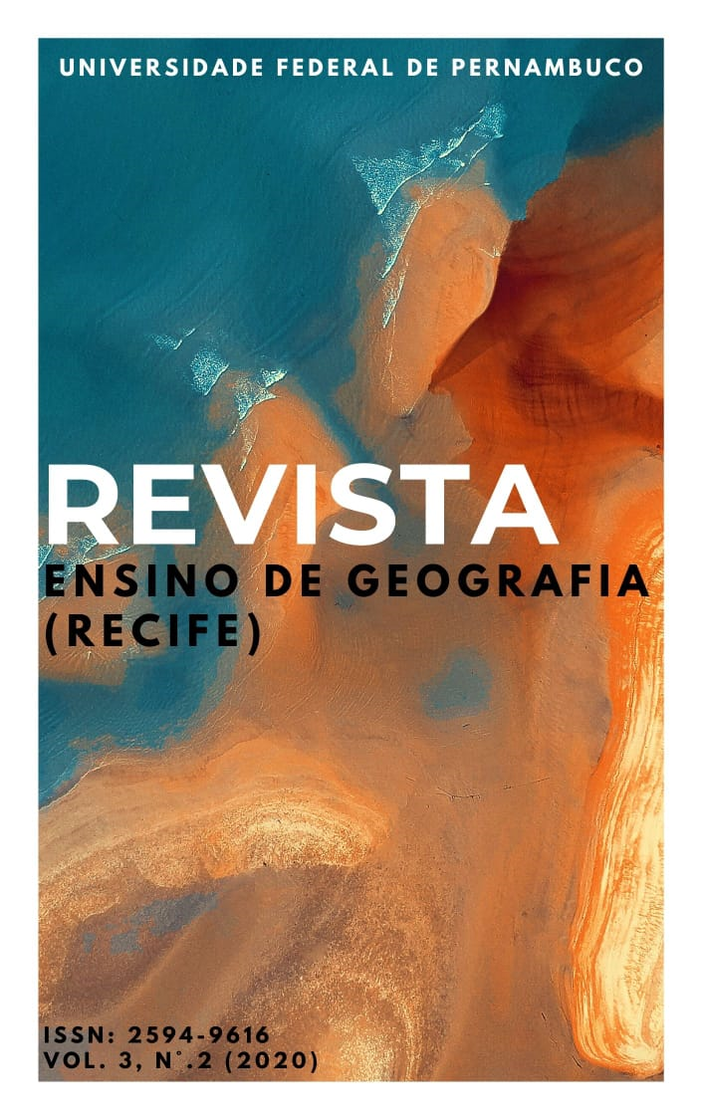Truths and fake news: using whatsapp's communication dynamics in teaching polar regions for higher education in geography
DOI:
https://doi.org/10.51359/2594-9616.2020.242956Keywords:
Climate change, Geography teaching, TICAbstract
The aim of this research is to present new ways of approaching Climate Change and teaching polar regions to undergraduate students in Geography through interdisciplinary discussion and the construction of courseware linked to new information and communication technologies, such as WhatsApp. The first step was set aside for news distribution to students. The second step consisted in a presentation with information and explanations on Antarctica and climate change, aiming to support students to answer true or false to the news. In the third step students could touch and wear some objects used by researchers in Antarctic fieldworks. The use of WhatsApp to demonstrate a systemic approach of climate change has revealed different possibilities to understand these subjects using knowledge from Climatology and other disciplines. By addressing climate change in the disciplines of biogeography, population geography, agrarian geography, cultural geography, climatology, cartography, geomorphology and urban geography, it is possible to deepen these systemic relations between the physical and the human. Therefore, the teacher needs constant updating, as the quantity and diversity of published scientific materials are large, as well as the spread of fake climate news
References
ALMEIDA, L. M. W. de.; FONTANINI, M. L. de C. Aprendizagem significativa em atividades de modelagem matemática: uma investigação usando mapas conceituais. Investigação em ensino de ciências, v.15, p.403-425, 2010.
BERTOTTI, A. P.; ROSA, K.K.; HOLGADO, F. L. Criosfera e mudanças climáticas: uma abordagem para o ensino fundamental. In: ENCONTRO DE PRÁTICAS DE ENSINO DE GEOGRAFIA DA REGIÃO SUL, 1º., 2013, Porto Alegre. Anais... Porto Alegre: UFRGS. 2013, p. 38 - 44
JACOBI, P. R.; GUERRA, A. F. S.; SULAIMAN, S. N.; NEPOMUCENO, T. Mudanças climáticas globais: a resposta da educação. Revista Brasileira de Educação, v. 16 n. 46, 2011.
MORAIS, E. M. B. de. As temáticas físico-naturais no ensino de geografia. In: CAVALCANTI, Lana de Souza. Temas da Geografia na escola básica. Campinas, SP: Papirus, 2013.
MORAN, J. M.; MASSETTO, M. T.; BEHRENS M. A. Novas tecnologias e mediações pedagógicas. Campinas, SP. Papirus, 2012.
SCHWANCK, F. et al. Drilling, processing and first results for Mount Johns ice core in West Antarctica Ice Sheet. Brazilian Journal of Geology, São Paulo, v. 46, n. 1, p. 29-40, 2016.
STÜRMER, A. B. As TIC’S nas escolas e os desafios no ensino de geografia na educação básica. Geosaberes, Fortaleza, v. 2, n. 4, p. 3-12, 2011.
Downloads
Published
How to Cite
Issue
Section
License
Copyright (c) 2021 Carina Petsch, Luiz Felipe Velho, Rafaela Mattos Costa, Katia Kellem da Rosa

This work is licensed under a Creative Commons Attribution 4.0 International License.
Authors who publish with this journal agree to the following terms:- Authors retain copyright and grant the REVISTA ENSINO DE GEOGRAFIA (RECIFE) right of first publication with the work simultaneously licensed under a Creative Commons Attribution NonCommercial International 4.0 (CC BY-NC) that allows others to share the work with an acknowledgement of the work's authorship and initial publication in this journal.
- Authors are able to enter into separate, additional contractual arrangements for the non-exclusive distribution of the journal's published version of the work (e.g., post it to an institutional repository or publish it in a book), with an acknowledgement of its initial publication in this journal.
- Authors are permitted and encouraged to post their work online (e.g., in institutional repositories or on their website) prior to and during the submission process, as it can lead to productive exchanges, as well as earlier and greater citation of published work.



